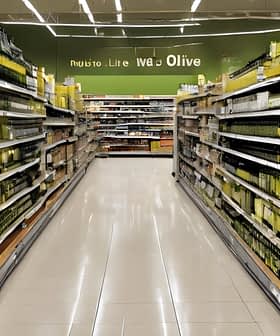Europe Endorses Olive Oil Standard Changes Despite Industry Divide
The European Union is endorsing new olive oil trade standards at a meeting of the International Olive Council in July to harmonize international standards and improve quality assessments, despite concerns from some member states and industry stakeholders. The changes include updating measurement methods, adjusting sterol limits, and aligning regulations with global standards, with ongoing discussions to address concerns about potential disadvantages for certain olive-producing regions.
The European Union is set to endorse new olive oil trade standards at an upcoming meeting of the International Olive Council (IOC) in July, despite concerns from some member states and industry stakeholders.
The changes, developed in collaboration with the IOC, aim to harmonize international standards and enhance olive oil quality and purity assessments, while taking into account global production and the impact of climate change.
In a decision published in June 2025, the Council of the European Union said it will support updating the method for measuring waxes and fatty acid ethyl esters, adding a method for determining diglycerides and triglycerides; adding a footnote to adjust the total sterols limit for Koroneiki and Nocellara del Belice monovarietal oils, pending further studies; and removing the test for halogenated solvent traces.
See Also:Europe Tightens Restrictions on Hydrocarbons in Virgin Olive OilAccording to the council, the proposed adjustments will ensure fair competition and align E.U. regulations with global standards. According to IOC data, the E.U. was responsible for 61 percent of international olive oil production over the past half-decade.
However, not all stakeholders are convinced. Some industry representatives argue that the new sterol composition requirements, which revise the acceptable levels of delta (7)-stigmastenol, a naturally occurring compound in olive oil, could disadvantage certain European olive-producing regions.
Producers’ primary concern is that sterol content may fluctuate due to regional climate, and some olive varieties might yield oils that fall outside the new thresholds, even if they are otherwise high-quality extra virgin.
They are further worried that this could result in unfair disadvantages for traditional producers in affected regions, potentially impacting their ability to market their oils under certain quality classifications. Others are concerned that stricter regulations may increase compliance costs for smaller olive oil businesses.
In response to these concerns, the IOC indicated that discussions are still ongoing within relevant expert groups, and the members would examine the issues when they meet at the 121st session of the Council of Members.
“We welcome the updating by the European Union of the olive oil standard, which is the result of the close collaboration between our experts and the European authorities,” said Mercedes Fernández, the head of research and standardization at the IOC.
Beyond its significant role in production, the E.U. is also the leading exporter and consumer of olive oil.
The 27-member bloc was responsible for 45 percent of olive oil consumption over the past half-decade. Meanwhile, E.U. countries also shipped 63 percent of global olive oil exports over the same period.
Fernández noted that the changes to the standard were agreed initially as part of the E.U.’s June 2024 decision to align its marketing standards for olive oil with those of the IOC.
“This development marks a significant step,” Fernández said. “The IOC will continue to work to ensure that its standards serve as a global reference, safeguarding product authenticity and protecting consumers.”







